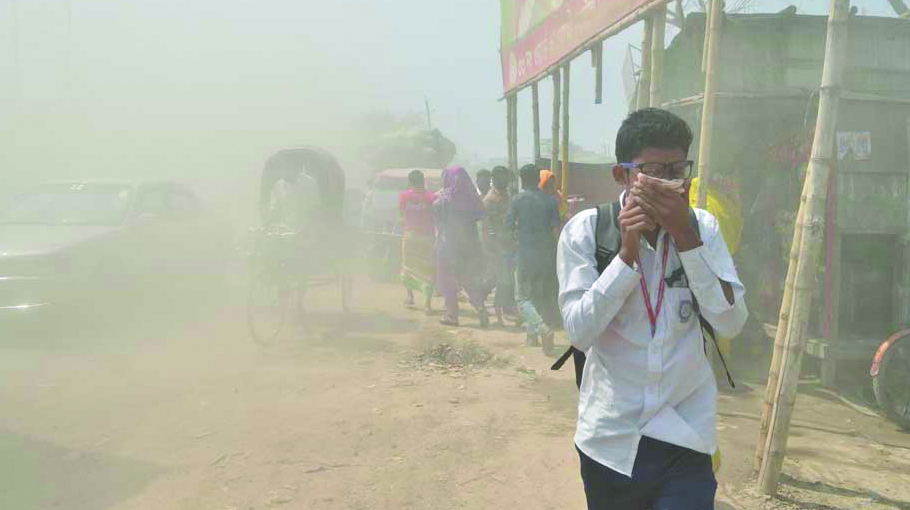Air pollution cuts average longevity by 7.7yrs

The current level of air pollution in Dhaka has decreased the life expectancy of a citizen living in the capital by more than seven years and seven months.
Speakers at a human chain titled 'Stop dust pollution and improve fuel quality to prevent air pollution' stated that air pollution is currently the main threat to public health. The human chain was held in front of the National Museum in the capital on Saturday.
The speakers said that according to the Bangladesh Bureau of Statistics, the average life expectancy in Bangladesh is about 72 years and six months. According to a Life Index study, the average life expectancy decreased by about two years and eight months in 1997 due to air pollution.
Similarly, due to air pollution, the average life expectancy of people across the country decreased by about five years and four months in 2019. Hence, overall, life expectancy in Dhaka has decreased about seven years and seven months, they added. The speakers highlighted that the rate of air pollution in every district of the country is at least three times higher according to the policy of the World Health Organization. Although the government has taken various steps to prevent air pollution, it is not enough.
Environmental catastrophe, including health risks, will take a terrible shape if strict action is not taken as per the law.
“Air pollution is now a serious problem. Dhaka is the second most polluted city in the world. Dust pollution, brick kilns and smoke emitted as a result of low fuel consumption in vehicles are one of the major causes of air pollution,” said a leader at the chain.
In Bangladesh, low quality coal is used as fuel in brick kilns. On the other hand, very low quality diesel, octane and petrol are used as vehicle fuel. This increases the smoke and increases the level of air pollution, he added.
Leaders at the human chain further said that uncontrolled construction work, uncoordinated renovation work and road digging are the main causes of dust pollution. This can lead to shortness of breath, allergies, coughs, asthma, bronchitis, high blood pressure, headaches, lung cancer, sperm damage, birth defects, risk of stroke, kidney disease, heart attack, mental problems, depression, sadness, restlessness and other negative emotions. As a result, public health is under serious threat.
Members in the human chain demand effective measures to stop dust pollution by identifying the source of dust pollution and to stop import of low quality coal used as fuel in the country.
They said that the country has to play an effective role in preventing low quality diesel, octane and petrol from being sold as liquid fuel.
Chairman of the Save the Environment Movement (POBA), Abu Naser Khan, Director General of Human Rights Development Center Mahbubul Haque, President of Environment Movement Moncho Amir Hasan Masud and others were present during the human chain.



